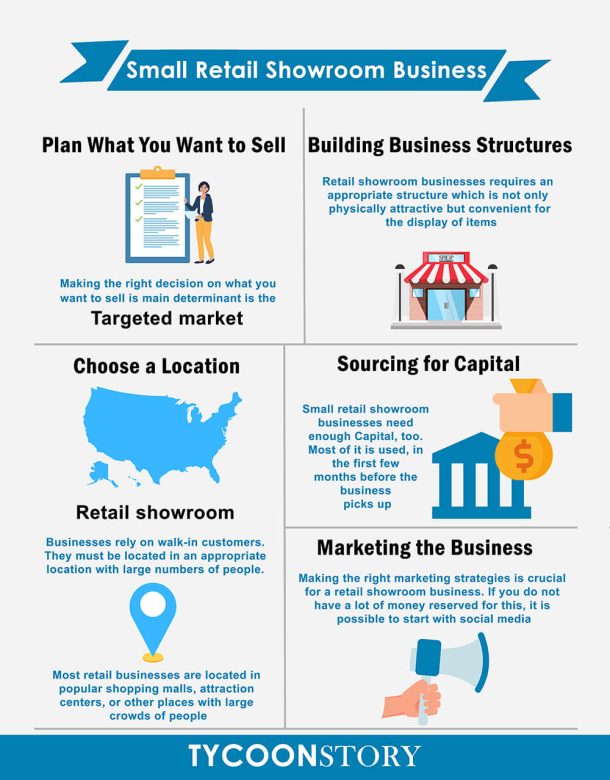Retail businesses are some of the most successful businesses you can start today with only a little capital. The list of different ideas under this category is endless, and it all depends on what you are comfortable doing. If you visit any shopping mall, you will be surprised to see retail shops dealing with fashion and design, electronics, home appliances, and many other items. Even though the shops are small, a lot of preparation is needed to make them a success. Follow the highlights below to know what you need to start a small retail showroom business.
Plan What You Want to Sell
The retail business has a variety of options. Thus, making the right decision on what you want to sell is crucial. The main determinant is the targeted market and what seems to be doing well in these areas. No matter how small your intended retail business is, it is important to plan well for it. Planning involves preparing a business plan.
Choose a Location
Retail showroom businesses rely on walk-in customers. They must be located in an appropriate location with large numbers of people. Towns, cities, and other centers are the best places to target. Today, most retail businesses are located in popular shopping malls, attraction centers, or other places with large crowds of people. Thus, it is a must for an entrepreneur to consider many factors before they settle on a certain location.
Building Business Structures
Retail showroom businesses require an appropriate structure that is not only physically attractive but also convenient for the display of items. Some retail shops require modification of the existing structures or building a new structure altogether. For any of these solutions, temporary structures for retail showroom businesses are the best option. If you choose experts like Smart-Space solution providers, you will not regret it. They are the best.
Sourcing for Capital
Small retail showroom businesses need enough capital, too. Most of it is used to buy goods from suppliers, build the showroom, hire employees, and take care of the overhead expenditures in the first few months before the business picks up. One can either take a loan, apply for grants, or use savings. In some cases, entrepreneurs raise capital through liquidation of previously owned assets like a house, car, or machine. As soon as there is enough capital, there is no other reason why you should not start the business.
You can also apply for a loan from banks or acquire venture capital, which has its own set of advantages and challenges. Keep in mind though that this route typically will require you to have an ‘official’ company set up and registered.
Marketing the Business
Making the right marketing strategies is crucial for a retail showroom business. If you do not have a lot of money reserved for this, it is possible to start with social media, which is almost free. Create business pages and start looking for followers. This can soon be followed by a website, which might cost you a little. The beauty of using digital marketing is that it allows you to compete with bigger businesses.
Finally, it is worth mentioning that coming up with cashless payment methods is very important. Choose the most popular in your area and ensure that it is safe and secure for clients. With all of the above highlights, you can rest assured that your retail showroom business will be a big success.






